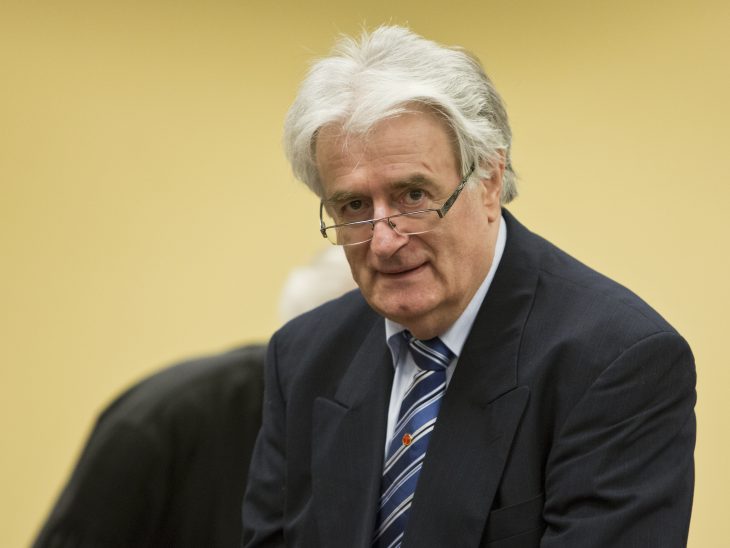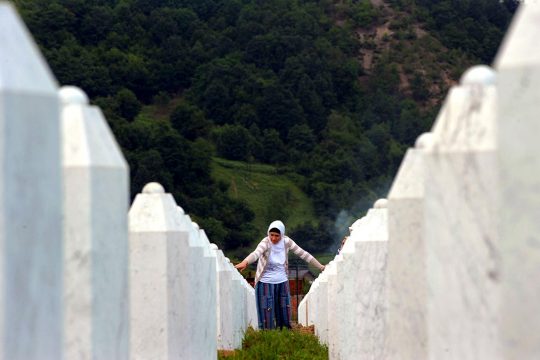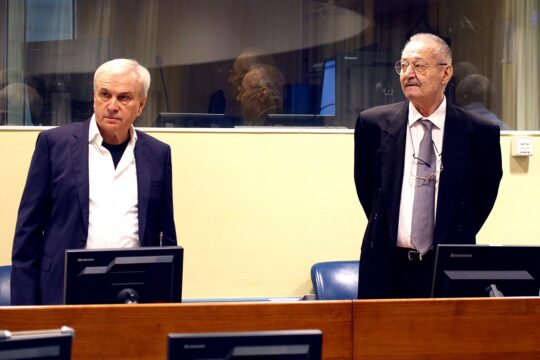The International Criminal Tribunal for the former Yugoslavia (ICTY) on Thursday found former President of Republika Srpska Radovan Karadzic guilty of genocide and war crimes committed during the Bosnian War of 1992-1995. But neither Serbs nor Bosniaks seems satisfied with Karadzic’s 40 year sentence.
Karadzic (70) faced charges on eleven counts including genocide, crimes against humanity and breaching the laws or customs of war in the 1992-1995 Bosnian War. The ICTY judges found him guilty on ten counts.
Serbs largely see the sentence as unfair and politically motivated while Bosniaks claim it is too lenient and too late. Both sides claim, however, that this is yet more evidence that reconciliation in Bosnia and Herzegovina is still a long way off.
Legal experts expect both Karadzic and the Prosecutor to launch appeals, and it could take up to two or three years until a final verdict is reached.
Belgrade lawyer Toma Visnjic, who is familiar with ICTY practices, says Karadzic’s appeal will probably focus on efforts to clear him of the Srebrenica genocide conviction. The Prosecutor, on the other hand, might try to clarify charges of genocide in seven additional Bosnian municipalities, of which Karadzic was acquitted on Thursday.
Bosniaks too hope to see Karadzic sentenced for genocide not only in Srebrenica but also in municipalities of Bratunac, Foca, Kljuc, Prijedor, Sanski Most, Vlasenica and Zvornik.
But Chairman of Bosnia and Herzegovina collective Presidency Bakir Izetbegovic urged local political leaders not to politicize the ICTY verdict, praising it at the same time as “the most important one since the Nuremberg Nazi trials“.
“It is important that the verdict is handed down for a terrible politics and ideology," he said at a press conference in Sarajevo.
However, Serbian political leaders in Republika Srpska say legal evidence supporting the verdict is weak and the Tribunal was politically influenced.
“Such policies discredit and cripple the process of reconciliation in Bosnia and Herzegovina,” said Prime Minister of Republika Srpska Zeljka Cvijanovic. “The suffering struck all ethnic communities during the war but judicial processes are clearly not contributing to reconciliation."
Apart from opposing political statements, analysts say some local and international media have also played a negative role, both during the war and in the present time. The headlines referring to Radovan Karadzic as “Butcher of Bosnia” which appeared after the verdict on CNN, Fox News and some other mainstream media may hardly be seen as supportive of reconciliation. Neither do the statements coming from senior Russian political leaders claiming that the Hague Tribunal is anti-Serb. Similar trends are visible in numerous local media outlets in the Balkans. In addition to this, analysts on both sides indicate that primary and secondary school history text-books are contributing to ethnic-based hatred among the young generation, sowing the seeds of potential future conflicts.
In an interview with Balkan Investigative Reporting Network (BIRN) published one day before the verdict, Radovan Karadzic said that he expects many of the ICTY sentences “to be discussed longer than Dreyfus’ sentence”. Many people with different standpoints might agree. It might be fair to say that political leaders of the countries formed after the breakup of the former Yugoslavia have shown in the past that they are not capable or ready to contribute to genuine reconciliation, and the international community should also accept its role. It seems it will take some more years before the real process of reconciliation starts in the Balkans.






